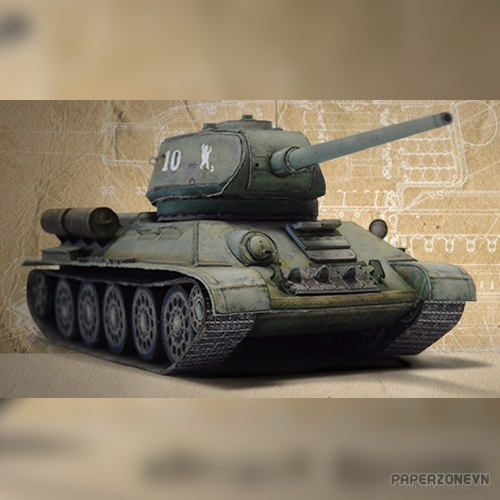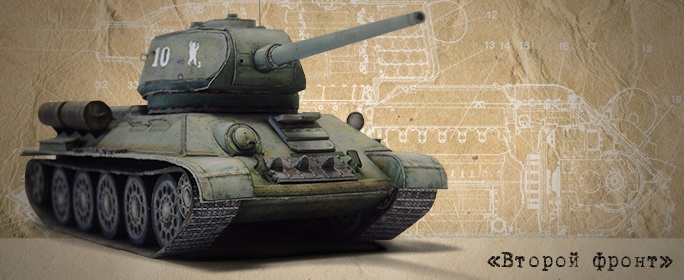- Thumbnail
-

- Resources
- Wargaming.net
- Author
- Unknown.
- Printed File Format
- Page(s)
- 9
- Instruction Format
Armoured Vehicle Tank T34-85 Papercraft
The T-34 is a Soviet medium tank introduced in 1940. Its 76.2 mm (3 in) tank gun was more powerful than its contemporaries while its 60 degree sloped armour provided good protection against anti-tank weapons. The Christie suspension was inherited from the design of American J. Walter Christie's M1928 tank, versions of which were sold turret-less to the Red Army and documented as "farm tractors", after being rejected by the U.S. Army.[citation needed] The T-34 had a profound effect on the conflict on the Eastern Front in the Second World War, and had a lasting impact on tank design. After the Germans encountered the tank in 1941 during Operation Barbarossa, German general Paul Ludwig Ewald von Kleist called it "the finest tank in the world" and Heinz Guderian affirmed the T-34's "vast superiority" over German tanks. Alfred Jodl, chief of operations staff of the German armed forces noted in his war diary "the surprise at this new and thus unknown wunder-armament being unleashed against the German assault divisions," although its armour and armament were surpassed later in the war.

The T-34 is a Soviet medium tank introduced in 1940. Its 76.2 mm (3 in) tank gun was more powerful than its contemporaries while its 60 degree sloped armour provided good protection against anti-tank weapons. The Christie suspension was inherited from the design of American J. Walter Christie's M1928 tank, versions of which were sold turret-less to the Red Army and documented as "farm tractors", after being rejected by the U.S. Army.[citation needed] The T-34 had a profound effect on the conflict on the Eastern Front in the Second World War, and had a lasting impact on tank design. After the Germans encountered the tank in 1941 during Operation Barbarossa, German general Paul Ludwig Ewald von Kleist called it "the finest tank in the world" and Heinz Guderian affirmed the T-34's "vast superiority" over German tanks. Alfred Jodl, chief of operations staff of the German armed forces noted in his war diary "the surprise at this new and thus unknown wunder-armament being unleashed against the German assault divisions," although its armour and armament were surpassed later in the war.

Sponsored: Google Advertising

